- News
- Reviews
- Bikes
- Accessories
- Accessories - misc
- Computer mounts
- Bags
- Bar ends
- Bike bags & cases
- Bottle cages
- Bottles
- Cameras
- Car racks
- Child seats
- Computers
- Glasses
- GPS units
- Helmets
- Lights - front
- Lights - rear
- Lights - sets
- Locks
- Mirrors
- Mudguards
- Racks
- Pumps & CO2 inflators
- Puncture kits
- Reflectives
- Smart watches
- Stands and racks
- Trailers
- Clothing
- Components
- Bar tape & grips
- Bottom brackets
- Brake & gear cables
- Brake & STI levers
- Brake pads & spares
- Brakes
- Cassettes & freewheels
- Chains
- Chainsets & chainrings
- Derailleurs - front
- Derailleurs - rear
- Forks
- Gear levers & shifters
- Groupsets
- Handlebars & extensions
- Headsets
- Hubs
- Inner tubes
- Pedals
- Quick releases & skewers
- Saddles
- Seatposts
- Stems
- Wheels
- Tyres
- Health, fitness and nutrition
- Tools and workshop
- Miscellaneous
- Tubeless valves
- Buyers Guides
- Features
- Forum
- Recommends
- Podcast
feature
 Giro d'Italia 100 (Photo credit ANSA - Peri-Zennaro-Dal Zennaro-Bazzi).jpg
Giro d'Italia 100 (Photo credit ANSA - Peri-Zennaro-Dal Zennaro-Bazzi).jpgGiro d'Italia 2017: Our stage-by-stage preview of the 100th edition
As the first Grand Tour of the year, the Giro d’Italia is always eagerly awaited – with the excitement added to by the race passing a landmark next month, with the staging of the 100th edition. It's one where celebrations of that landmark will be tinged with sadness at the death last weekend of Michele Scarponi, winner of the 2011 edition.
To mark the 100th edition, organisers have devised a course that with the exception of the briefest of forays into Switzerland lies entirely within Italy’s boundaries, and from the opening few days on Sardinia and Sicily and a final week in the mountains of the north of the country, it promises to be a cracker.
First raced in 1909 and pausing only for the two World Wars, the past 99 editions of the Giro have seen some of cycling’s giants triumph – among them, Gino Bartali, Fausto Coppi, Miguel Indurain and Bernard Hinault, as shown in this video looking back down the years.
Here’s our stage-by-stage preview of the race in which those vying for the maglia rosa include past winners Vincenzo Nibali and Nairo Quintana. Scarponi, awarded the 2011 win after Alberto Contador was stripped of the title due to his doping ban, had been due to lead Astana's challenge in place of the injured Fabio Aru.
> Play road.cc Fantasy Giro d'Italia!
Stage 1
Friday 5 May
Alghero - Olbia (206km, flat)
The first three days of the race unfold on Sardinia, but celebrations of the island hosting the Gran Partenza will be tinged with some sadness that local hero Aru will not be on the starting line after pulling out a fortnight before the race with a knee Injury.
There are three categorised climbs on the stage. San Pantaleo, the last, is crested inside the final 20 kilometres and is likely to be used as a launchpad for an attack to secure the maglia rosa on the opening day.
Stage 2
Saturday 6 May
Olbia - Tortoli (221km, hilly)
Heading through the centre of the island, today’s route is a testing one, with barely any flat ground until the final few kilometres into Tortoli, where a 1.8-kilometre straight run-in to the finish won’t be seeing a mass sprint.
There may only be two categorised climbs, but there are several other smaller ones to contend with. We’d expect teams without ambitions for the overall to attack on the climb of the Genna Silana to try and get a rider into pink.
Stage 3
Sunday 7 May
Tortoli - Cagliari (148km, flat)
The final stage on Sardinia is flatter than the opening two days and ends in the island’s capital, Cagliari, which is hosting a stage finish for the fourth time.
The day’s one categorised climb, Capo Boi, shouldn’t tax the peloton unduly and the final 25 kilometres or so are as flat as they get, which should guarantee a bunch sprint – although a strong southerly wind on the exposed final kilometres could shake things up.
Monday 8 May – Rest Day 1
Stage 4
Tuesday 9 May
Cefalù - Etna (Rifugio Sapienza) (180km, mountain)
While the race certainly won’t get as close to Etna’s crater as that BBC film crew did in March, this is a tough stage especially this early in the race, and with the climb to the Portella Femmina Morta – the Dead Woman’s Pass midway.
The first summit finish of the race may well mean a change in the overall lead, but perhaps too early for any of the favourites to want to take it. The final climb isn’t the toughest this year, but it’s certainly one of those stages where someone’s GC hopes could be dashed.
Stage 5
Wednesday 10 May
Pedara – Messina (157km, flat)
Expect Messina to be in full festa mode today as Vincenzo Nibali – reigning Giro d’Italia champion and one of only six men to have won all three Grand Tours – rides into his home town, and on roads he’ll have known all his life.
The first half of the stage is pretty lumpy, but other than a short climb up to the glitzy resort of Taormina, just after the halfway point, the run-in is flat; a day for the sprinters looks on the cards.
Stage 6
Thursday 11 May
Reggio Calabria - Terme Luigiane (207km, hilly)
After an unprecedented five stages away from the Italian mainland, the race crosses the Straits of Messina into Calabria for the type of stage that could be one in which the breakaway could prevail but which has a bit of a sting in the tail following the day's two major climbs early on then a flat section after the halfway point.
It's not an easy finale, though, with a series of sharp climbs and technical descents before the end of the stage, where the final kilometre has a gradient of between 5 per cent and 10 per cent. One for a puncheur, perhaps?
Stage 7
Friday 12 May
Castrovillari – Alberobello (220km, flat)
This may be officially termed a flat stage, but that Category 4 climb between the two intermediate sprints (designated TV on the profile) could see some sprinters struggling to make it back on before the finale, which in turn could make it easier for any riders in the escape to keep the peloton at bay.
They could be helped in their efforts to stay away by what is a reasonably complicated run-in with the race heading mainly uphill through often narrow urban streets with some tight corners ahead of a first-ever stage finish in Alberobello, stage town for the first time.
Stage 8
Saturday 13 May
Molfetta – Peschici (189km, medium-mountain)
After a flat and potentially fast opening to the stage, the road rears up for the ascent to Monte Sant’Angelo ahead of a more undulating second half which could see attacks from riders in the break as well as those in the peloton behind, although many will be mindful that a stern test awaits tomorrow.
The final climb is 1.5 kilometres long with the gradient touching 12 per cent and between 9 and 10 per cent in the final 200 metres, meaning the overall contenders could be scrapping to try and take a few seconds over their rivals in the final approach to the line.
Stage 9
Sunday 14 May
Montenero di Bisaccia – Blockhaus (139km, mountain)
A monster of a climb to a summit finish the day before a rest day and with a Sunday afternoon TV almost audience to boot? The race organisers will be expecting fireworks on that final climb, and they’ll certainly get them.
The 13.2km climb has an average gradient of 8.5 per cent and – together with the Etna stage before the weekend – will start to give an idea of who this year’s main contenders will be.
Monday 15 May – Rest Day 1
Stage 10
Tuesday 16 May
Foligno – Montefalco (39.2km, ITT)
An individual time trial following a rest day isn’t uncommon in a Grand Tour, and today’s could see another reshuffling at the top of the overall standings; yes, there are hills to be negotiated, but the distance won’t favour those overall contenders who are less confident against the clock.
We’re not too far from where Alex Dowsett took his Giro stage win in a time trial in 2013, the Movistar rider an early starter who had to spend hours in the hot seat before being assured of victory. Again, today could be one for a strong time trial rider rather than an overall contender, especially with a hard day tomorrow?
Stage 11
Wednesday 17 May
Florence (Ponte a Ema) - Bagno di Romagna (161km, medium-mountain)
Ponte a Ema was home to one of Italy’s greatest cyclists – Gino Bartali. It was from here, during World War II, that he would smuggle false documents hidden in the frame of his bike during training rides to help families escape the Holocaust, and he even hid Jews in his house.
It’s the toughest stage in central Italy of this year’s race, with four categorised climbs – but with the last of those crested 25 kilometres from the finish, it looks like one where the riders in the break will be left to fight it out assuming none poses a threat in the overall standings.
Stage 12
Thursday 18 May
Forlì - Reggio Emilia (237km, flat)
A stage that starts on the Adriatic in a familiar location - Forli is hosting a stage for the nineteenth time - takes the race across the Appenines for the final time and into the Po Valley, with the stage profile flattening out for the second half.
Reggio Emilia, where the stage ends, is hosting a finish for the sixth time and while a sprint looks on the cards today, it could be from a reduced bunch if those two early climbs have taken their toll.
Stage 13
Friday 19 May
Reggio Emilia - Tortona (162km, flat)
The flattest stage of this year’s race will be played out, as it so often is, on the vast plain of the River Po, and will almost certainly be a sprint finish. It’s been known for such stages to be well in excess of 200 kilometres, so today’s distance gives some respite.
The stage ends in Tortona, commemorating five-time champion Fausto Coppi, who died there in 1960. The last time a stage began in Reggio Emilia, in 2011, it ended in tragedy with the death of Wouter Weylandt.
Stage 14
Saturday 20 May
Castellania - Santuario di Oropa (131km, mountain stage)
Starting in Coppi’s birthplace, this stage that pays homage to another Italian cycling legend –the late Marco Pantani, who triumphed here during his ill-fated 1999 defence of his title, and with the summit finish dedicated in his memory this time round.
Pan-flat for the first 120 kilometres, this could be a fast stage as the teams with overall contenders look to keep any escapees in check ahead of what is likely to be a slug-fest on the that last 11 kilometre climb, where the gradient hits 13 per cent in places.
Stage 15
Sunday 21 May
Valdengo – Bergamo (199km, medium-mountain)
The action in this stage will kick off in earnest in the final 50 kilometres, beginning with the climbs of the Miragolo San Salvatore, included in the race for the first time, then the Selvino. There’s one more climb to come in the finale as the race heads up to Bergamo Alta, the old city, then back down to the line.
The finish today is similar to that of last year’s Il Lombardia, won by Orica-Scott’s Esteban Chaves. The former Giro champion celebrated today is happily still alive – Felice Gimondi, born in Begamo, who duelled with Eddy Merckx and won the maglia rosa three times.
Monday 22 May – Rest Day 3
Stage 16
Tuesday 23 May
Rovetta – Bormio (227km, mountain)
Any edition of the Giro that takes in the Passo dello Stelvio is special; this year’s, however, sees the riders having to tackle it twice. Unlike the double ascent of the Alpe d’Huez that featured in the 100th edition of the Tour de France, they have to climb it from different sides.
First, there’s the small matter of the Mortirolo, where the gradient hits 16 per cent, to be negotiated before attacking the Stelvio from Bormio. Then, the race heads back up from the Swiss side – a first for the Giro – before a descent to the finish that will favour the brave.
Stage 17
Wednesday 24 May
Tirano - Canazei (219km, medium-mountain)
There's a tough, and most likely frantic, start to today's stage with the climb of the Aprica followed shortly afterwards by the Passo del Tonale then a long descent to the halfway point, where the road heads upwards again to tackle the Giovo.
With the day's hardest climbs out of the way and still 80 kilometres to ride, our money would be on a rider from the break winning. But it could still be influential for the overall, especially if a GC contender is feeling below par and struggles early on - in which case, expect rival teams to put the hammer down to try and distance him.
Stage 18
Thursday 25 May
Moena - Ortisei/St. Ulrich (137km, mountain)
Well, now. This is a nasty one. Five categorised climbs – the Passo Pordoi, Passo Valparola, Passo Gardena, Passo Pinei and then the Pontives ahead of the ascent to the finish. And all that with a vertical climb of 4,000 metres across the stage.
This stage, against the gorgeous backdrop of the Dolomites, could be the one where the Giro is won or lost; with that many climbs, it’s an obvious one for teams aiming for the overall title to go on the attack, and assuming the race is still fairly tight, we’d expect some changes in the top five.
Stage 19
Friday 26 May
Innichen/San Candido – Piancavallo (191km, mountain)
How this stage pans out will depend to a large extent on how the GC stands. If there is little in the way of time gaps at the top of the overall standings, teams with riders with an eye on the maglia rosa may look to get men into what is likely to be a fairly large break to act as a bridge for their leaders later on, and we could also see attacks on the Sella Chianzutan climb, tackled halfway through the day.
The final climb to Piancavallo, where Marco Pantani triumphed on his way to overall victory in 1998, is a nasty one, with an average gradient of 9 per cent and a maximum of 14 per cent, and until the last kilometre, the second half of the climb maintains an average of 8 per cent.
Stage 20
Saturday 27 May
Pordenone – Asiago (190km, mountain)
The final chance for anyone targeting the GC who has lost time to their rivals, or who expects to do so in tomorrow's individual time trial, to stake their claim to the top spot of the podium in Milan.
Montegrappa is a tough climb, and could well see attacks from the group containing the overall contenders before the long descent ahead of the final climb of this year's race, the Foza. If anyone in contention for the overall victory manages to get off the front there, it could be a thrilling final 15 kilometres as rivals try and give chase.
Stage 21
Sunday 28 May
Monza (Autodromo) – Milan (28km, ITT)
After toying for several years with sprinter-friendly final stages in cities such as Brescia, Trieste, and last year Turin, organisers have reverted this year to the individual time trial format for the race’s final day in its spiritual home, Milan.
It was here in 2012 that Ryder Hesjedal overhauled Joaquin Rodriguez in an individual time trial to grab the overall victory and give Canada its first – indeed, only – Grand Tour champion. Will the 100th edition of the race end in similarly dramatic fashion?
Simon joined road.cc as news editor in 2009 and is now the site’s community editor, acting as a link between the team producing the content and our readers. A law and languages graduate, published translator and former retail analyst, he has reported on issues as diverse as cycling-related court cases, anti-doping investigations, the latest developments in the bike industry and the sport’s biggest races. Now back in London full-time after 15 years living in Oxford and Cambridge, he loves cycling along the Thames but misses having his former riding buddy, Elodie the miniature schnauzer, in the basket in front of him.
Latest Comments
- Jaijai 3 sec ago
Try kill someone in a car and you get virtually 0 punishment .
- Clem Fandango 6 min 7 sec ago
Seen an air crash? Worried about aviation safety? Simple - ban passengers on aeroplanes. Problem solved, motor normative style.
- chrisonabike 44 min 56 sec ago
'Useless"? You're not one of those "outdoor cycling" purists by any chance?
- chrisonabike 49 min 30 sec ago
Helps keep an eye out for close passes I guess? https://m.youtube.com/watch?v=kPM3wy4asC8
- kingleo 2 hours 34 min ago
Every time we have a storm in the UK, many trees are blown down, so a few trees removed for a family cycle lane will not make much difference to...
- MiserableBastard 2 hours 41 min ago
Every mechanic I know hates Muc-Off Wet Lube with a fiery passion because it accumulates gunk like no other....
- ubercurmudgeon 3 hours 2 min ago
I wouldn't worry about it. Secret_squirrel is only the sole arbiter of what is acceptable for discussion in road.cc comments in his own head,...
- Miller 3 hours 11 min ago
Beautiful wheels, I wouldn't say no. But have a look for the 2000-era Gipiemme Grecal Parade wheels to see an early example of a similar look.
- chrisonabike 3 hours 29 min ago
Ah, but they're criminals - by definition if they entered illegally. It's when they change the laws to enhance their power and then break them...
- quiff 4 hours 18 min ago
Haptic feedback somewhere in the sytem? Just triggers a vibration when you press the shift button?
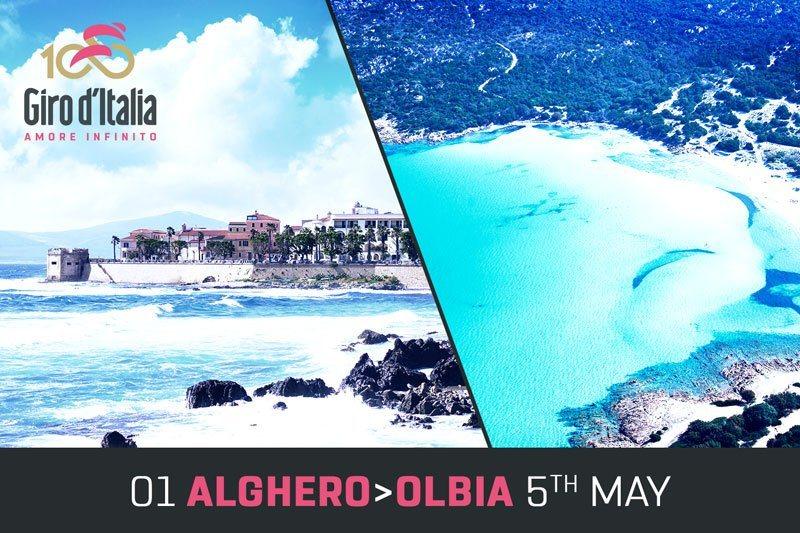
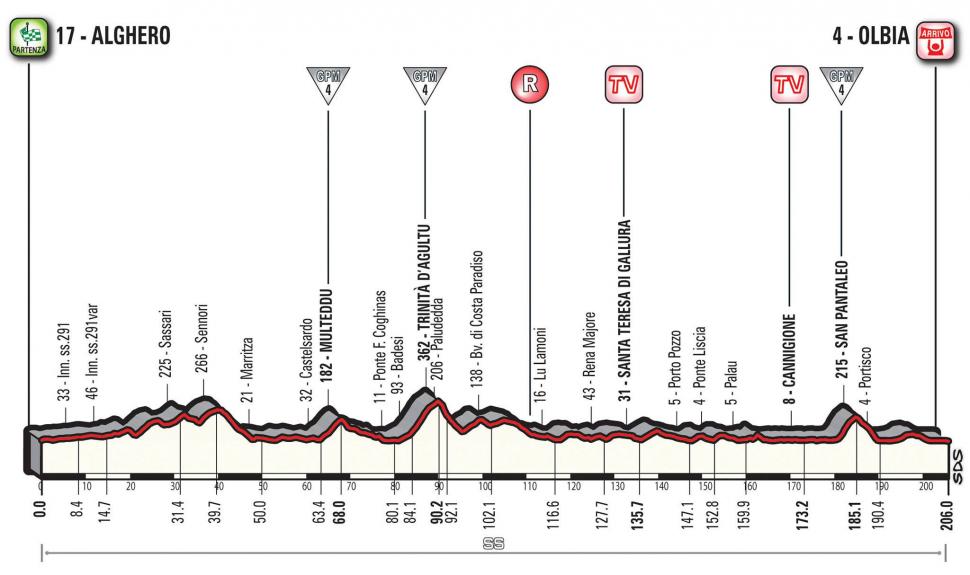
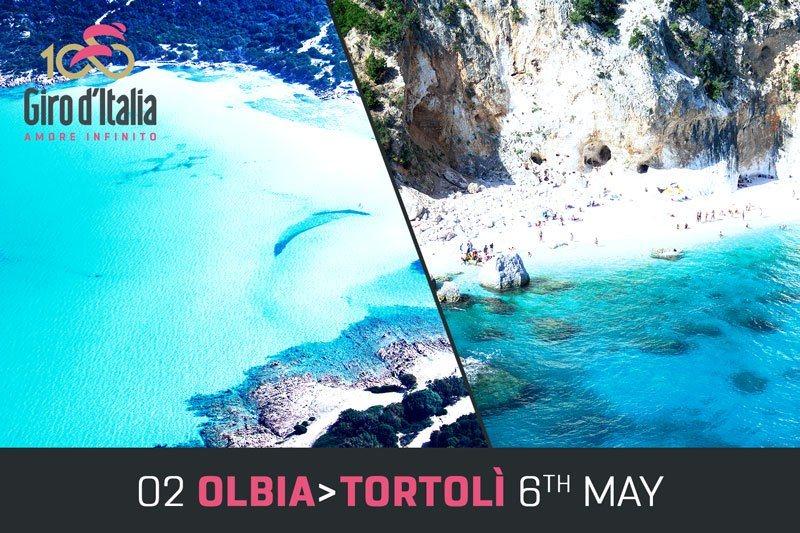
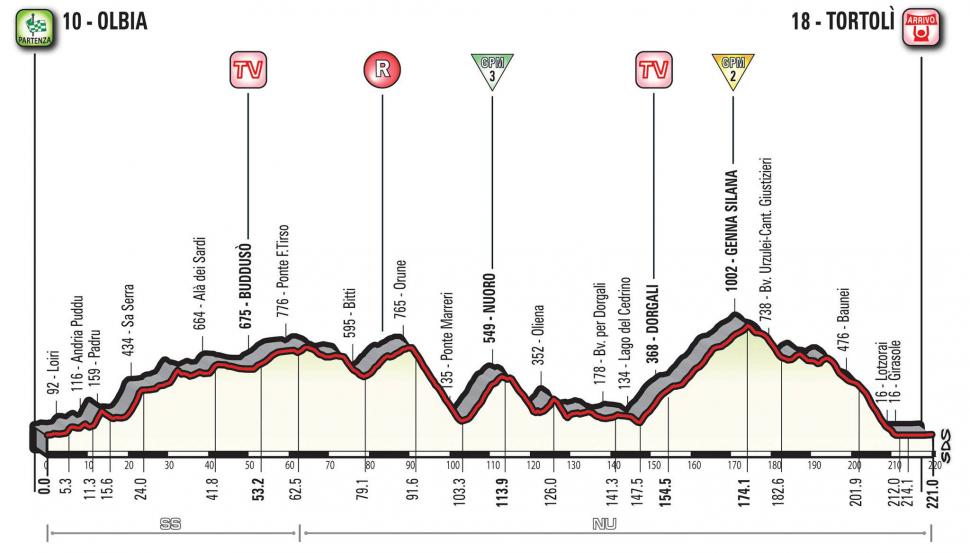
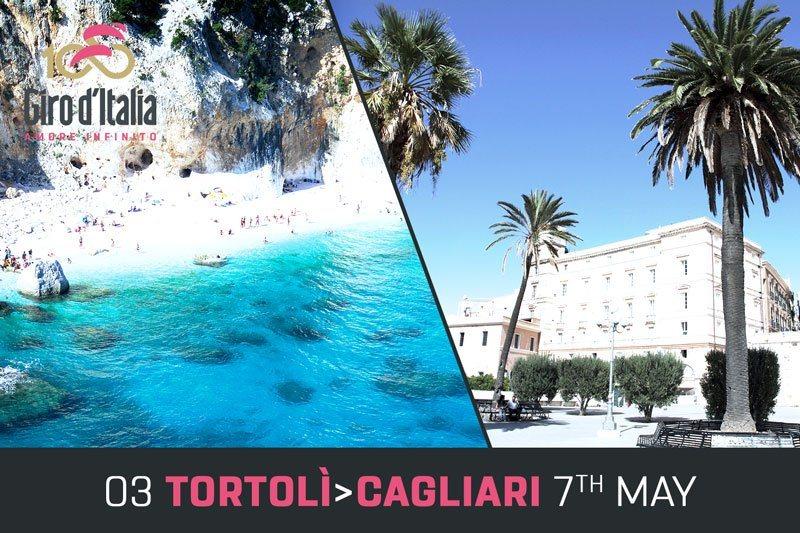
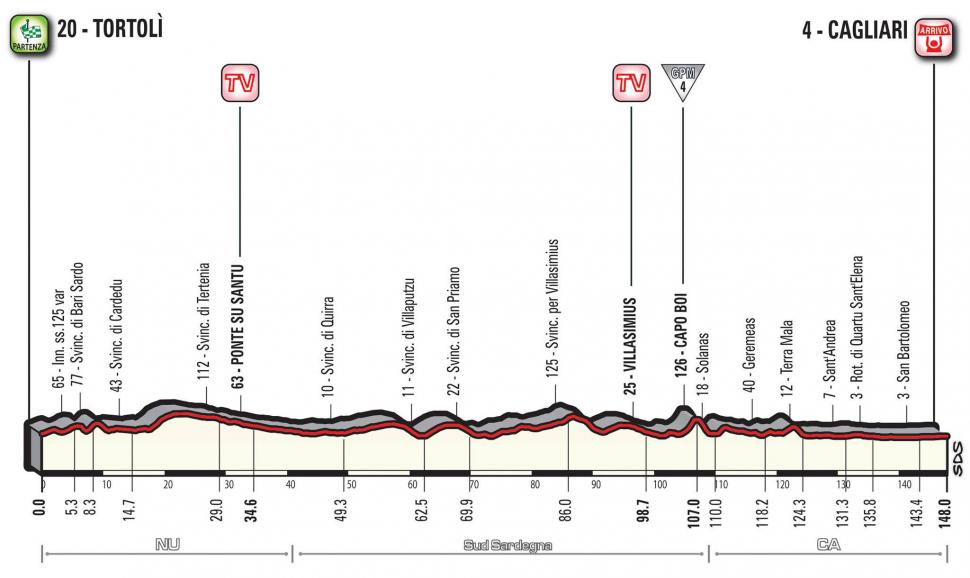
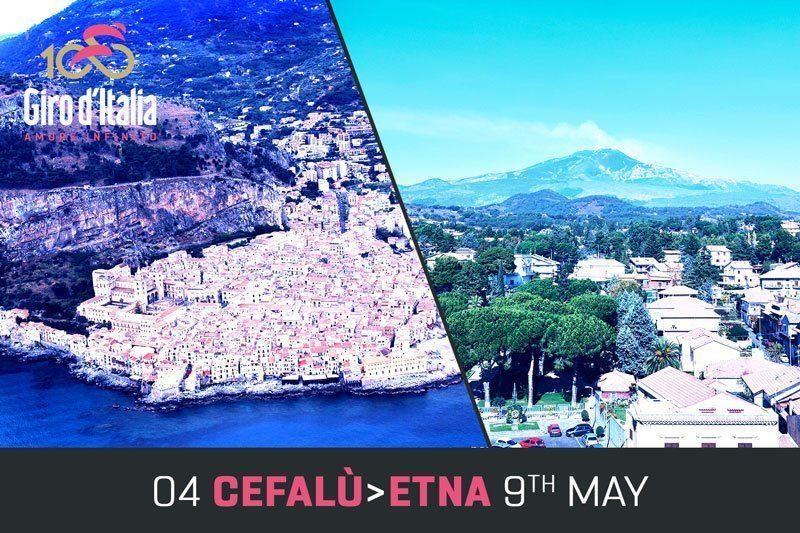

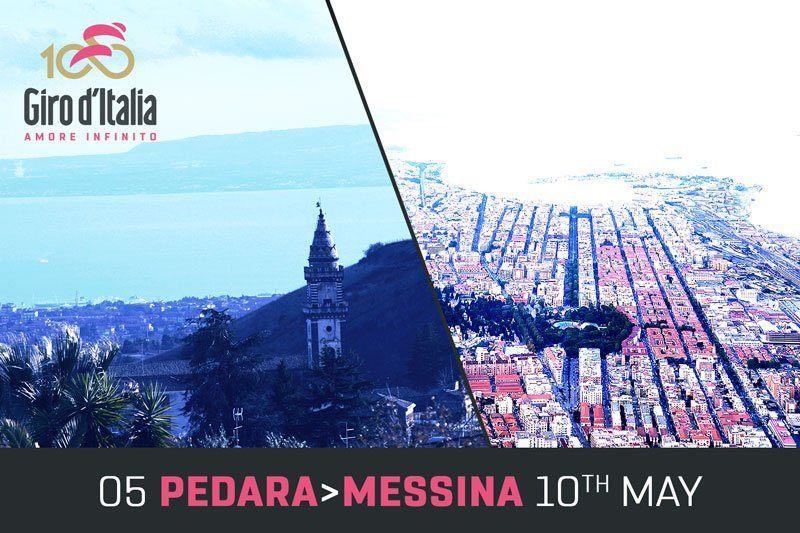

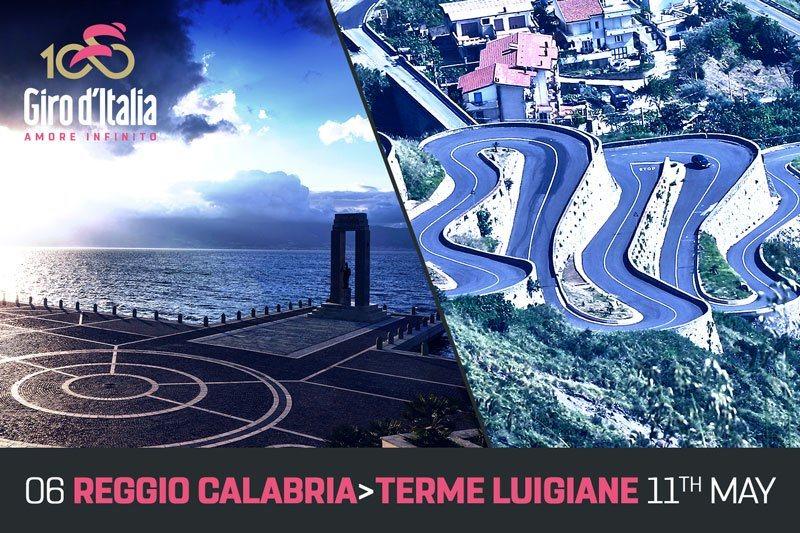
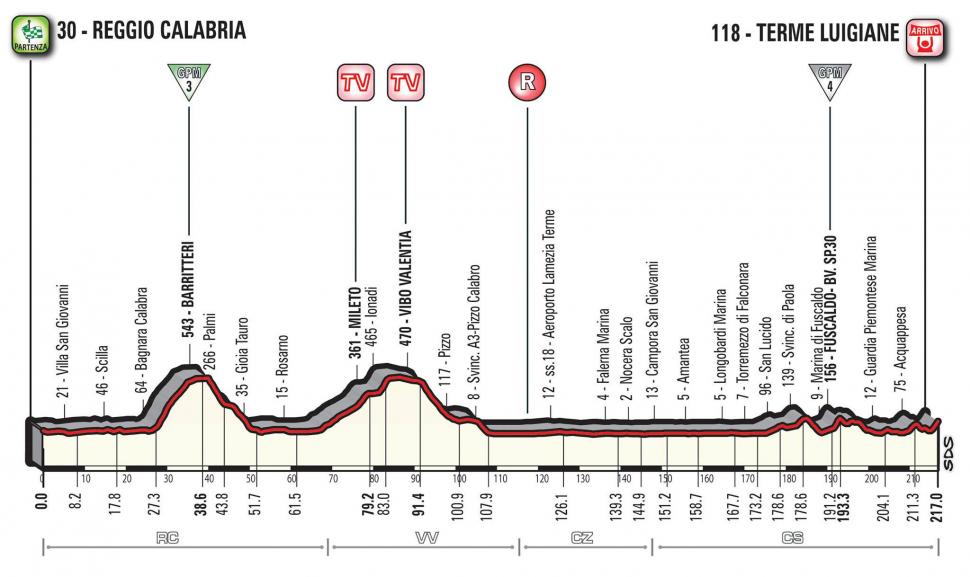
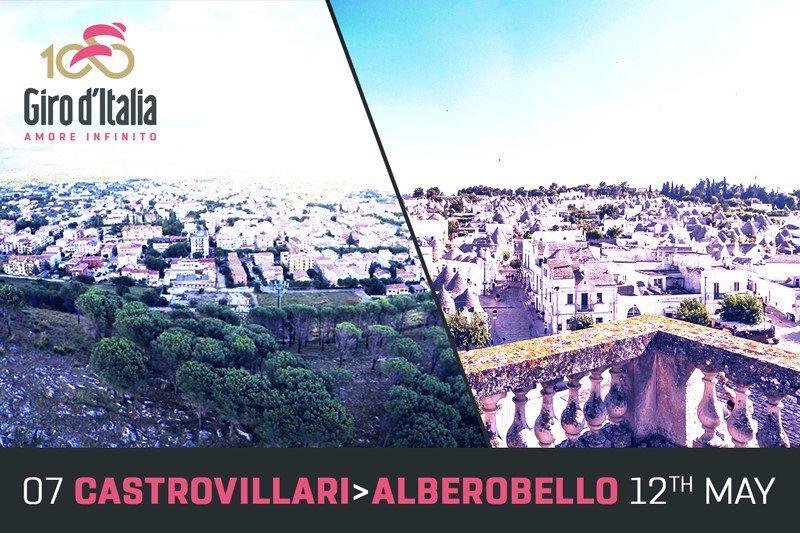
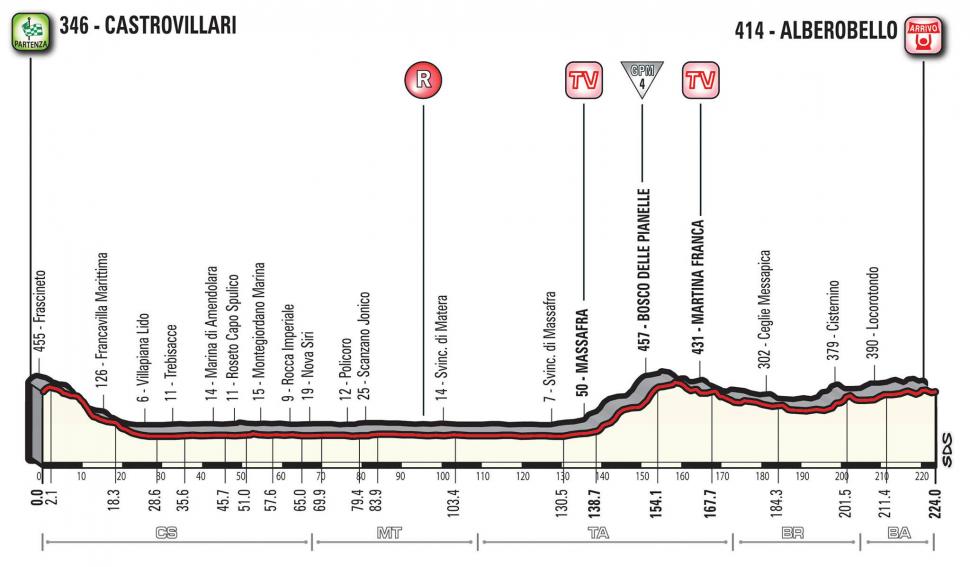
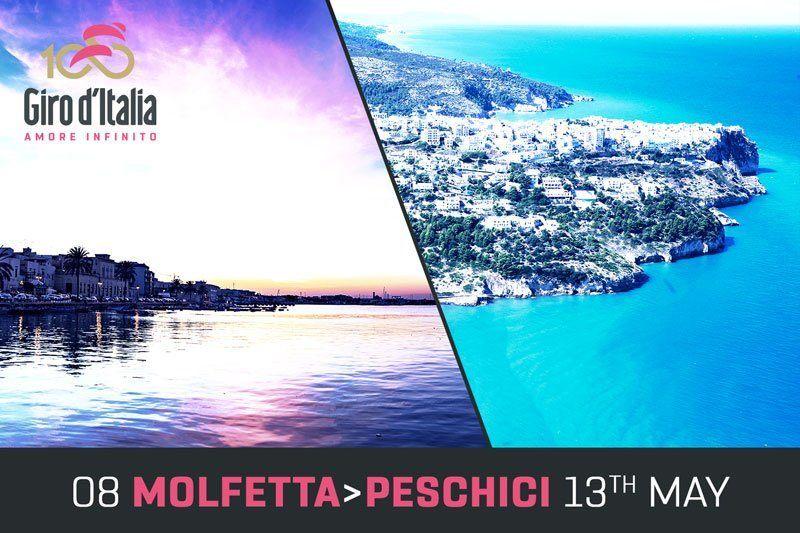
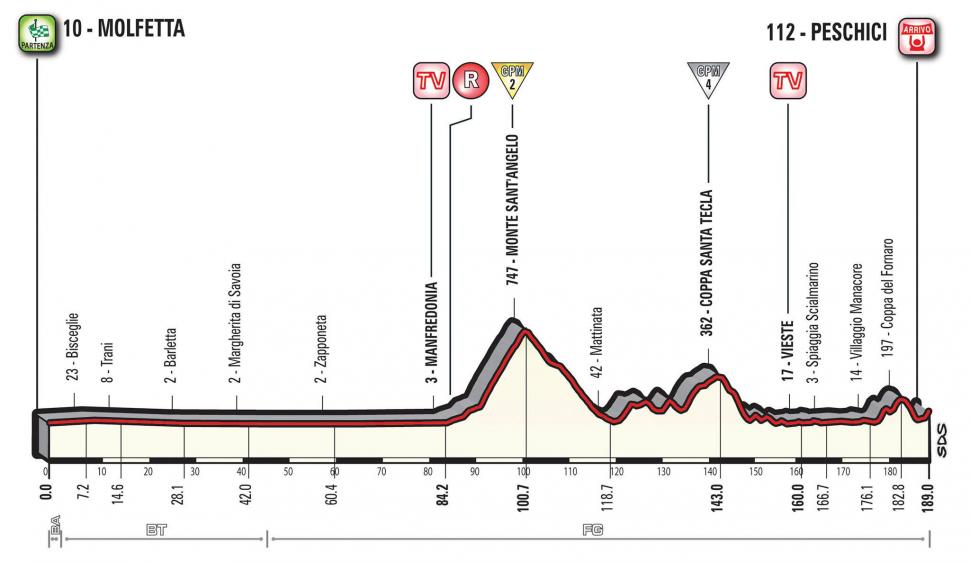
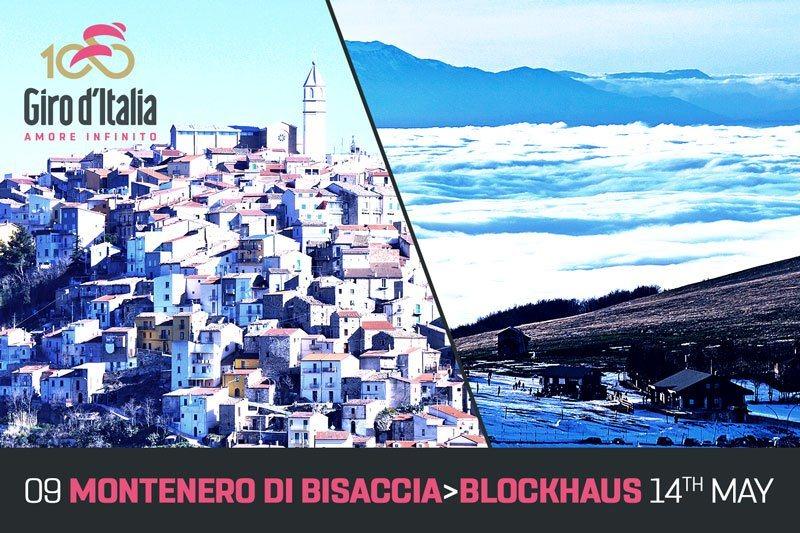
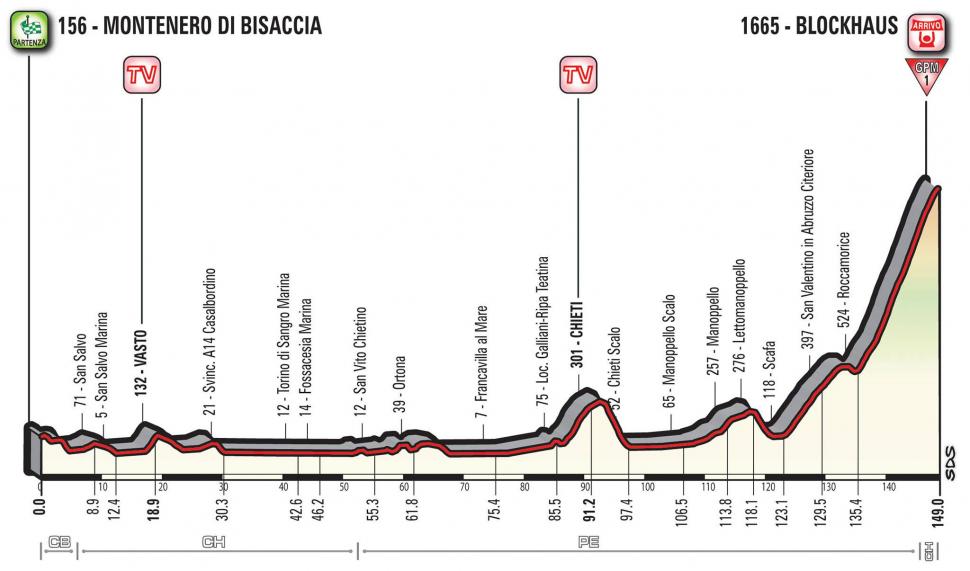
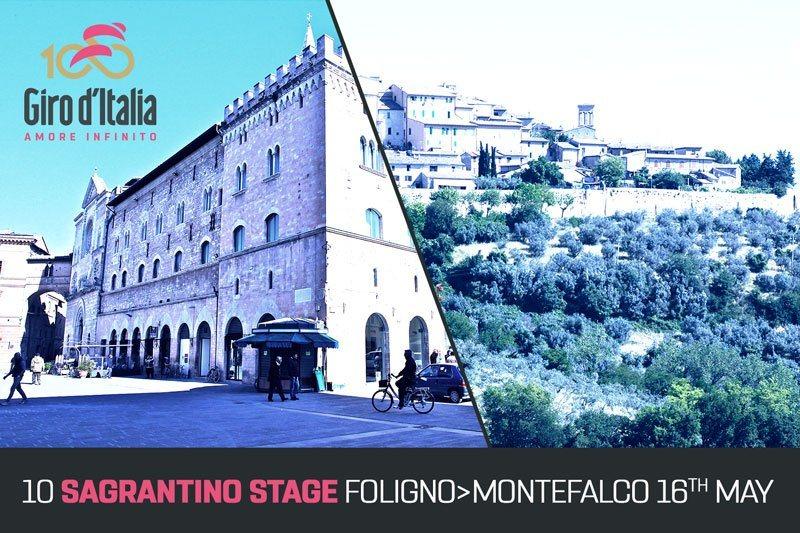
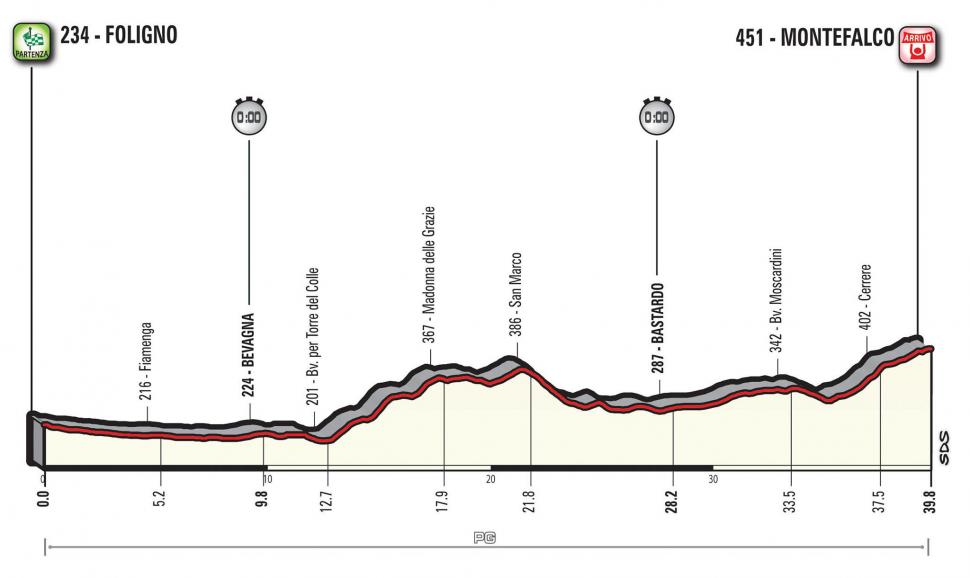

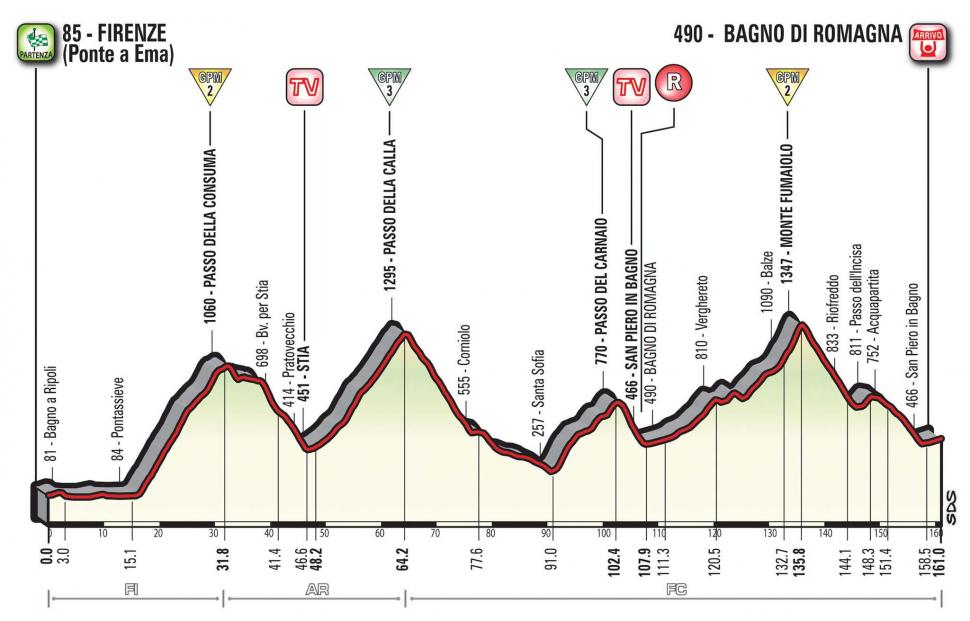
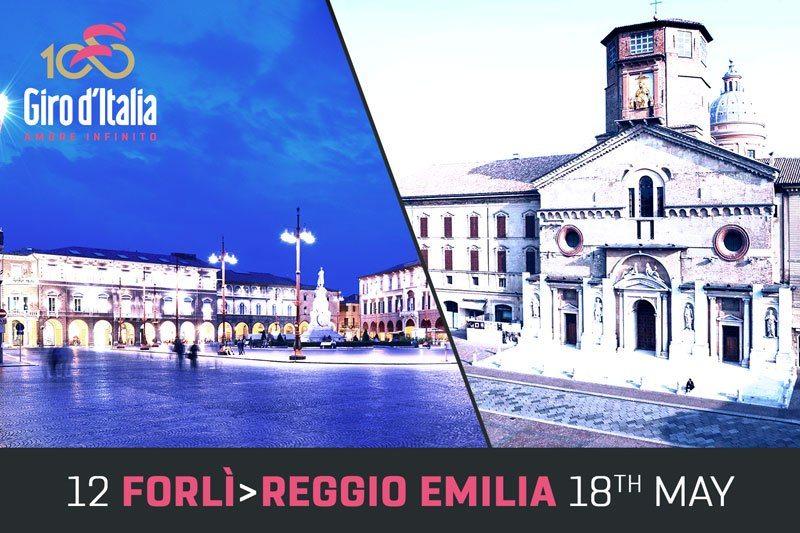
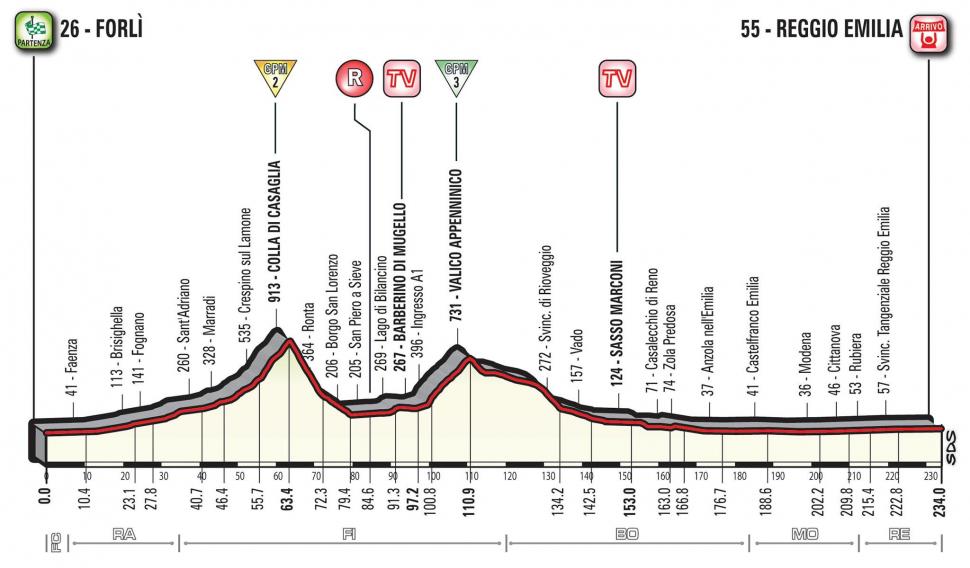
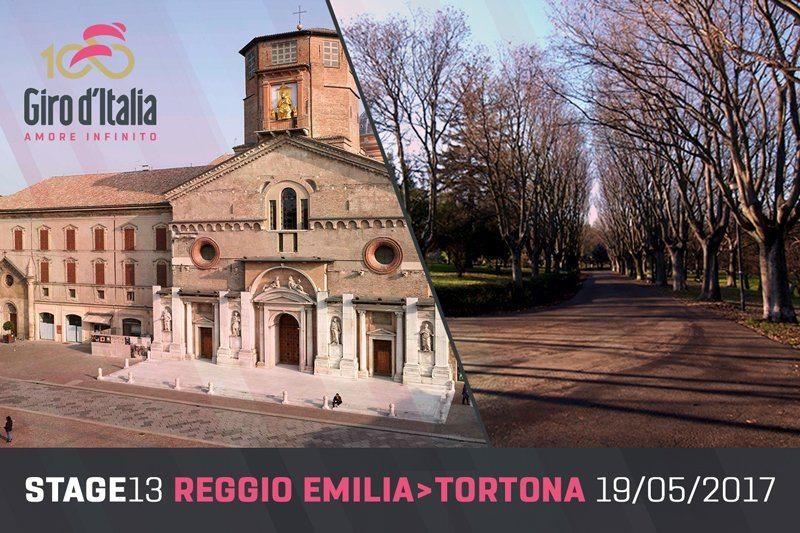
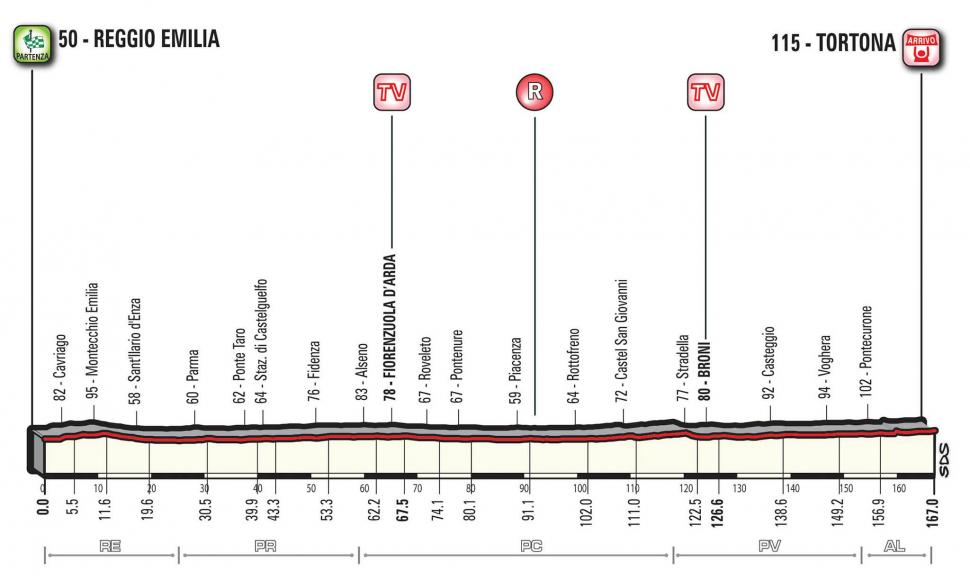
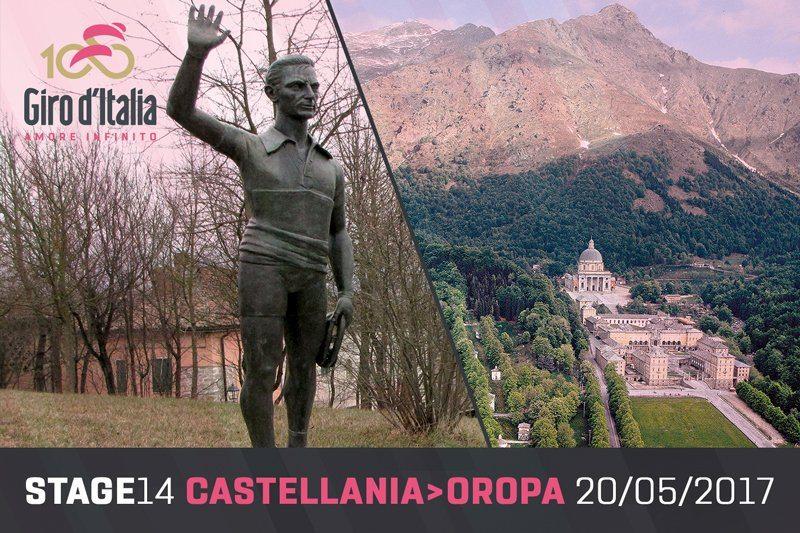

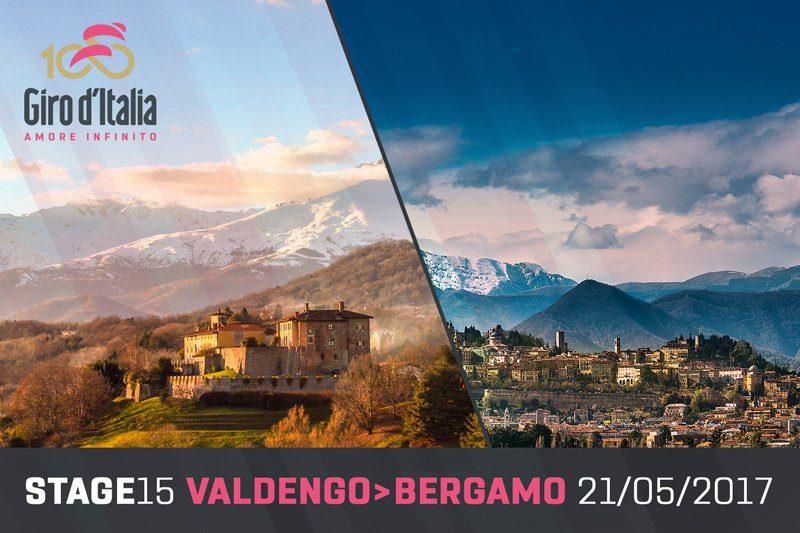

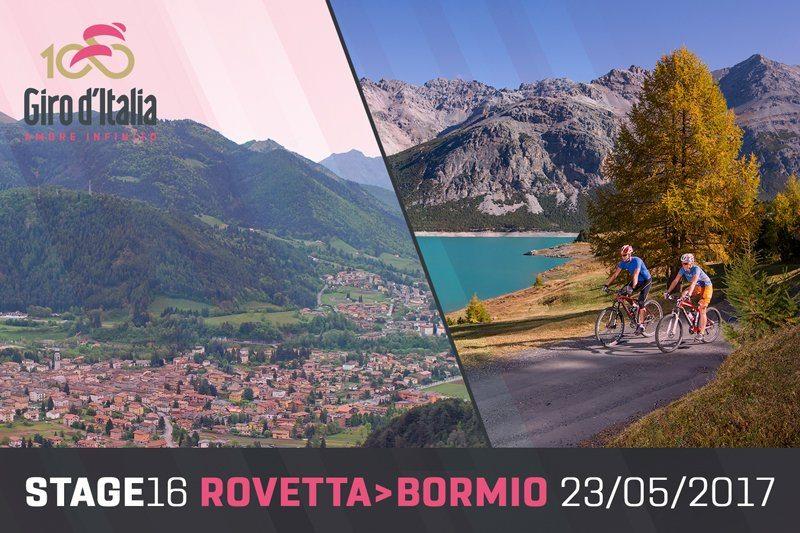
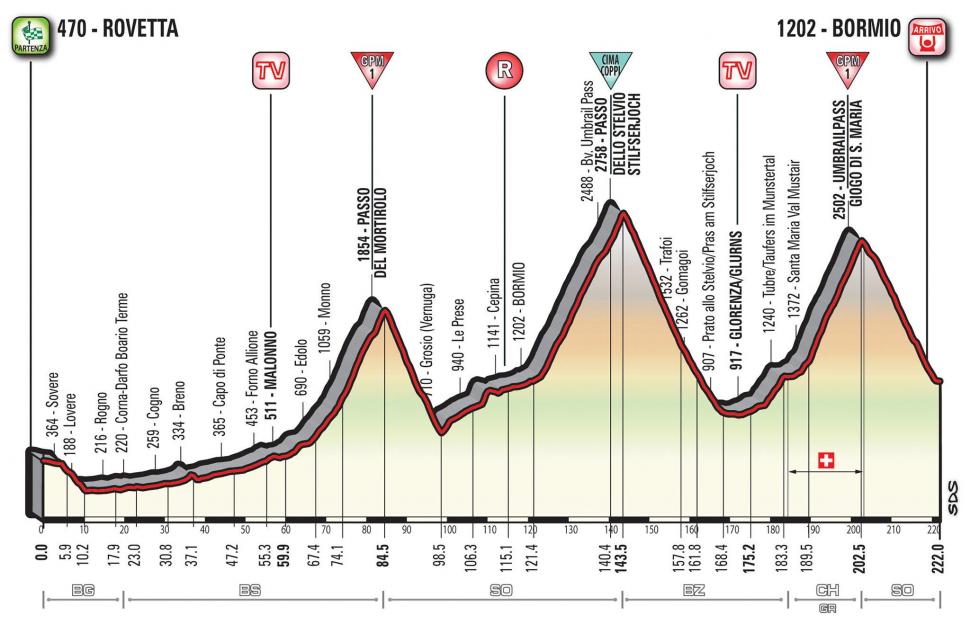
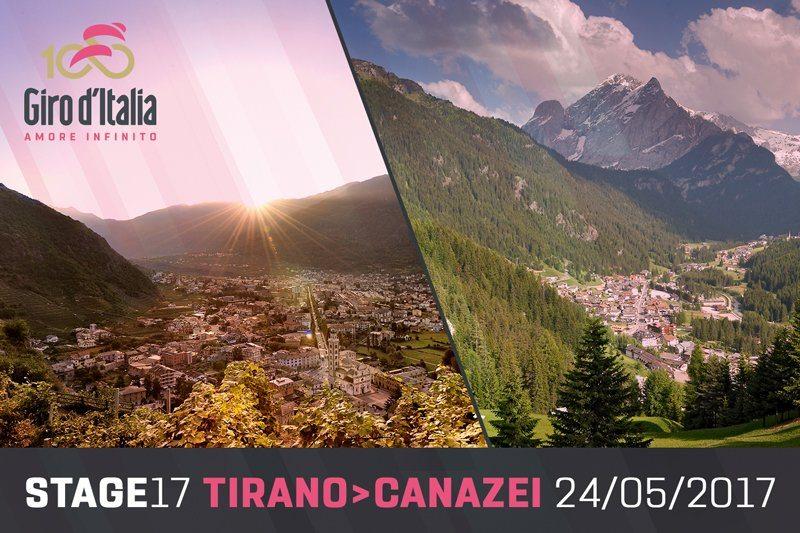
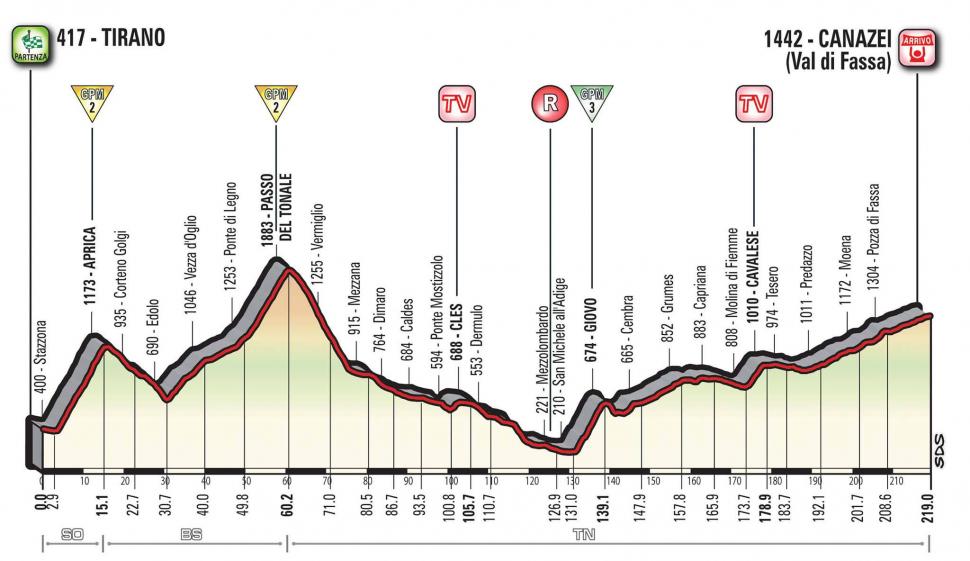

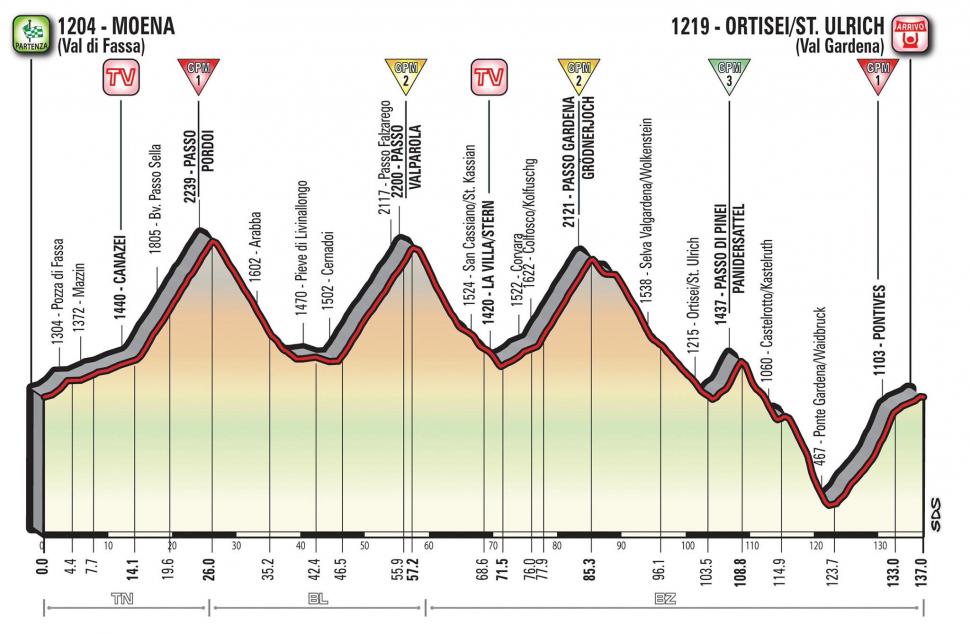
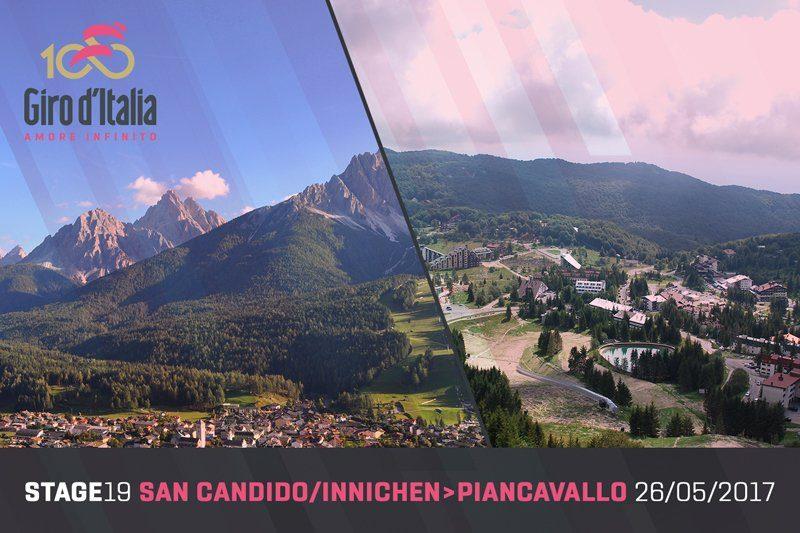
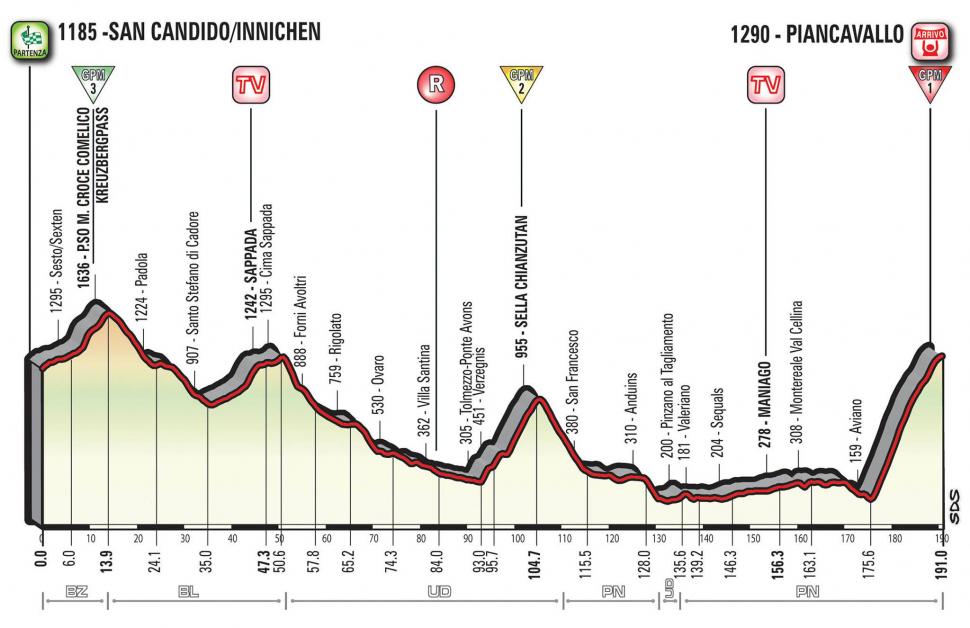

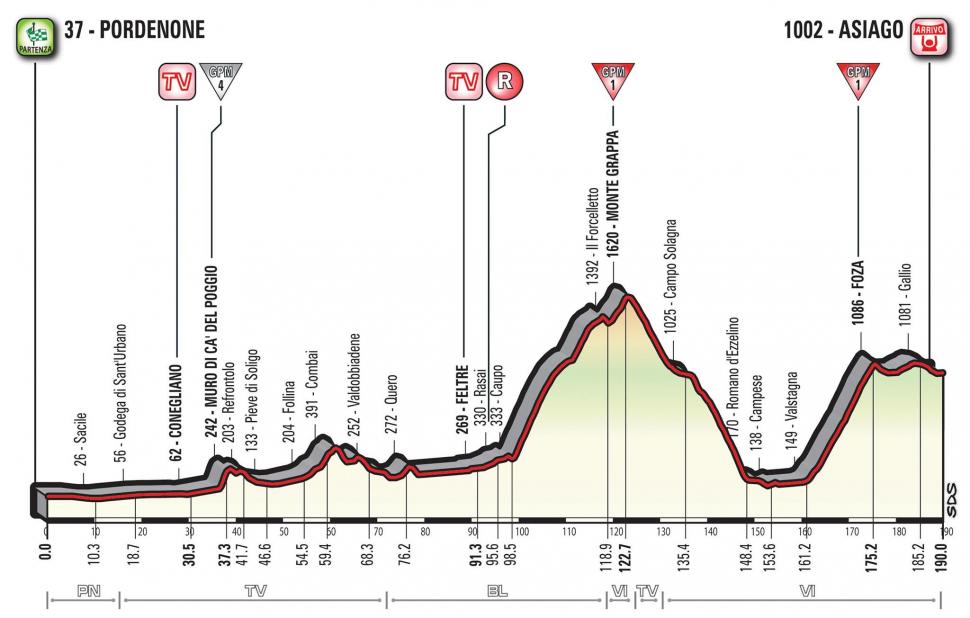
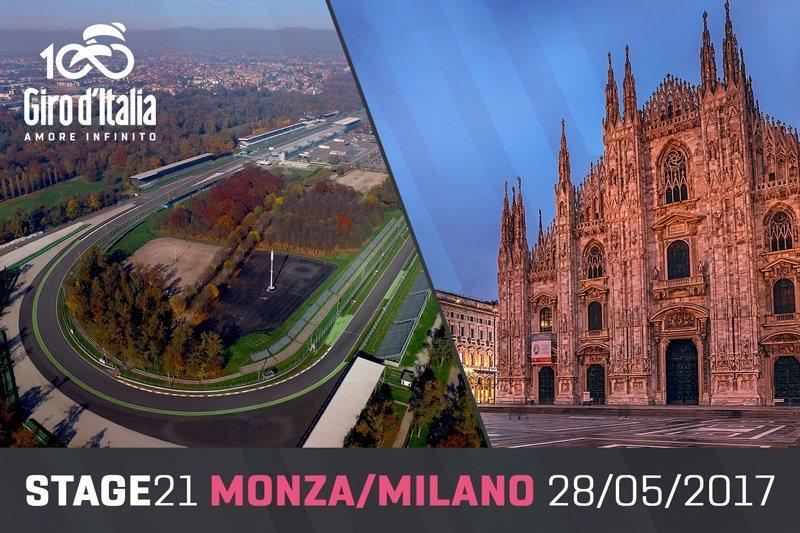
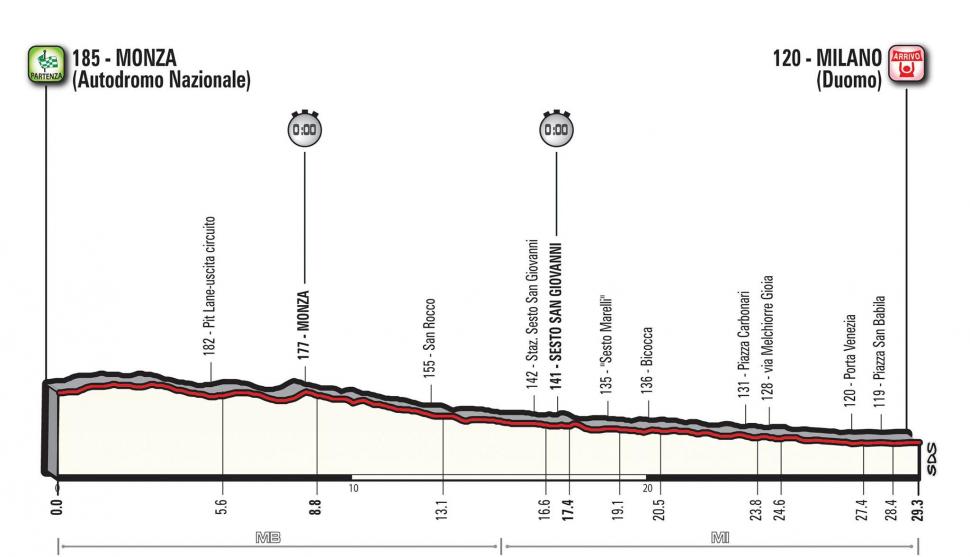
Add new comment
3 comments
The Stelvio stage looks a beast.
But I can't help but think the weather might write off some important climbs in this year's Giro, as in previous editions.
Free highlights are on Quest TV if you dont have Eurosport.
Great shout: thanks.